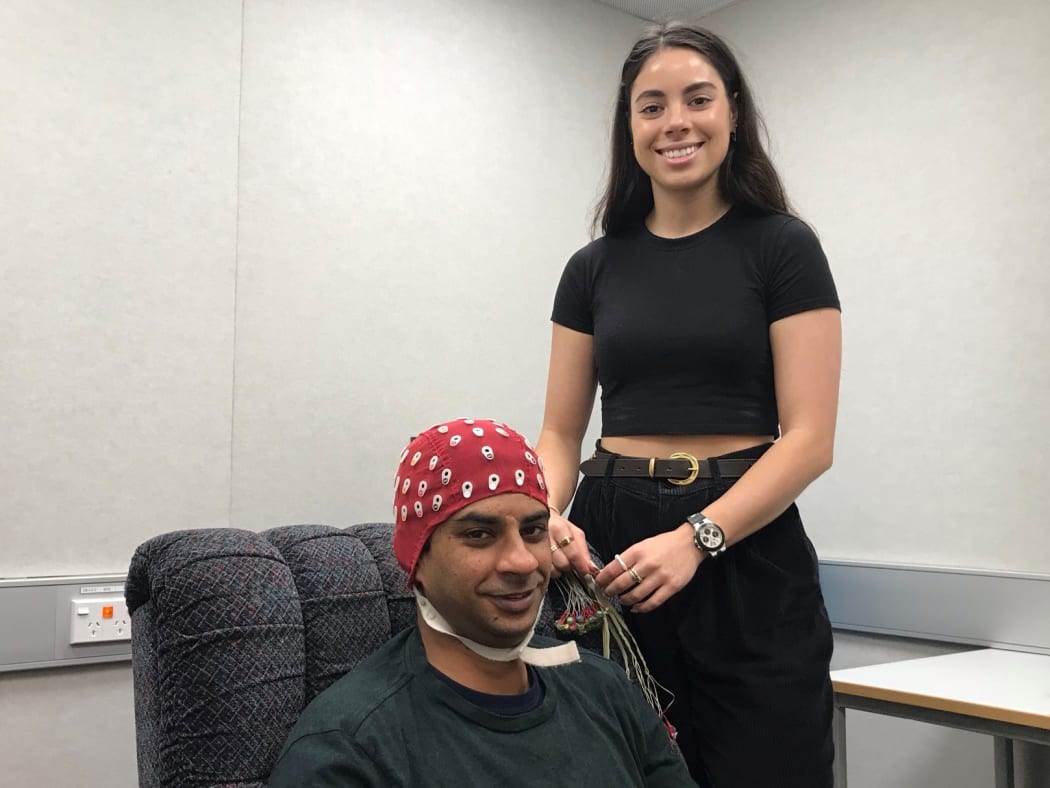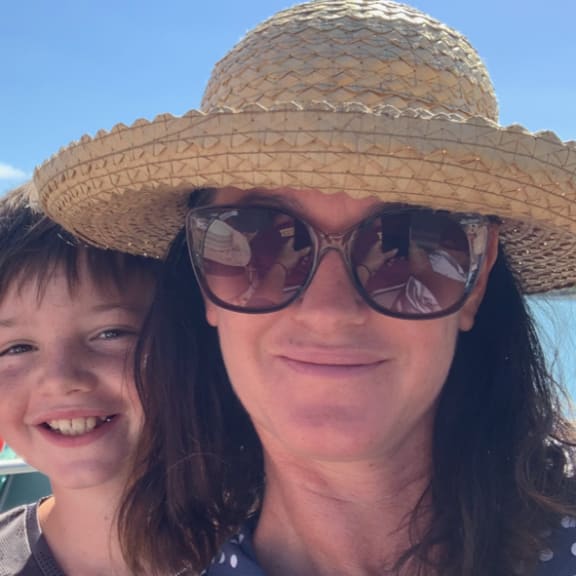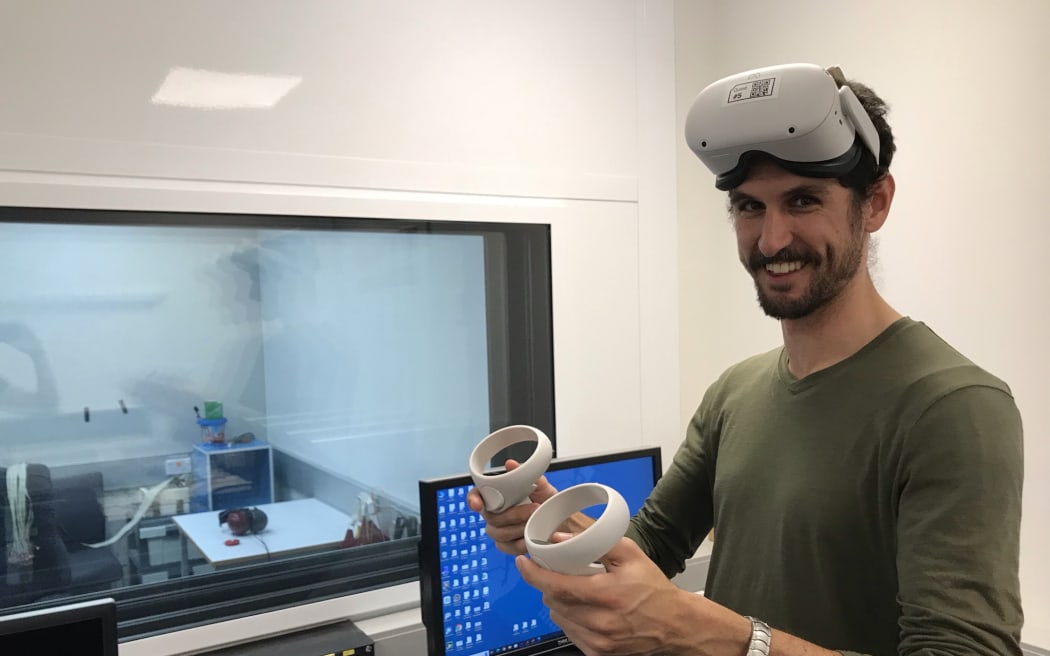Imagine the whistle of a kettle boiling, turned up to full blast, permanently on.
In your head.
How would it affect your mood? Your attention and focus?

Dunja Vajsakovich fits the electroencephalogram (EEG) cap and wires onto Dr Amit Barde. Photo: Claire Concannon
Follow Our Changing World on Apple Podcasts, Spotify, Stitcher, iHeartRADIO, Google Podcasts, RadioPublic or wherever you listen to your podcasts
“It’s difficult to describe but it just has such an impact on every facet of your life. You know, your sleeping habits, your mental health, your relationships with other people.”
Emily Lane was born with a hearing disability and has had tinnitus on and off all her life. But in 2006 it turned up permanently, and it was loud. “It’s like a chorus of cicadas living permanently on full blast inside my head.”

Emily Lane took part in the tinnitus digital therapy trial. Photo: Supplied
Many of us will experience a form of tinnitus at some stage in our lives, what Professor Grant Searchfield terms ‘nightclub tinnitus’. After a loud night out, we might wake in the morning with a ringing or buzzing in our ears, but it's likely to fade after a few hours.
Head of Audiology at the University of Auckland, Grant became interested in tinnitus when, as a practising audiologist, he didn’t have any answers for patients who came to him for help.
Since then, he has been investigating how to help chronic tinnitus sufferers – people who have experienced this phantom sound for more than six months, and whose lives are significantly impacted by it. And one thing has become very clear - this is a condition that varies widely from person to person, therefore the treatment must also vary.
And it's not just the sound that varies, but also the person’s response to the sound, and to treatment. This idea underpins the design of the digital therapeutic the team have developed to help tinnitus sufferers. Users get an app on their phone that allows them to select what they need – whether it’s nature soundscapes to help the person relax, complex sounds to help them get relief from their tinnitus, or active sound-based games to help retrain the brain.
The team ran a trial using a prototype of this digital therapy and found that, after twelve weeks of use, 65% of patients showed a clinically meaningful change in how badly their tinnitus impacted their lives. This was compared to 43% in the other group, which was given a popular sound therapy app.
They are now working on the next iteration and will do more trials. They are also hoping to make the digital therapy commercially available in New Zealand by the end of this year or early 2024 and have started the steps towards making it available in the USA.

Dr Phil Sanders also investigated whether virtual reality can help people control their tinnitus. Photo: Claire Concannon
Alongside this, the research group are also investigating other avenues to help. These include experiments with augmented and virtual reality, developing easy-use EEG equipment to detect changes in brain patterns, and using machine learning to better predict what treatment will work best for different types of tinnitus.
Listen to the episode to learn more about what tinnitus is, how it impacts people’s lives, and the research the group are doing to try help those affected by it.
To learn more:
- Contact the team by emailing tinnitus.research@auckland.ac.nz or visit the digital therapy website https://www.truesilencetherapeutics.com/
- You can read the research article reporting the results of the trial of the therapeutic in the Frontiers of Neurology Journal.
- Professor Grant Searchfield has featured on RNZ talking about this tinnitus research on Nights, Midday Report, and in 2016 on Afternoons. He has also spoke about hearing aids and dementia.
- Listen to previous Our Changing World episodes about how the brain helps us interact with the world. ‘The puzzle of the silent mind’ introduces those who don’t have an inner ear. While ‘The Science of… Virtual Reality’ explains how VR works by replacing our senses with computer generated content.


